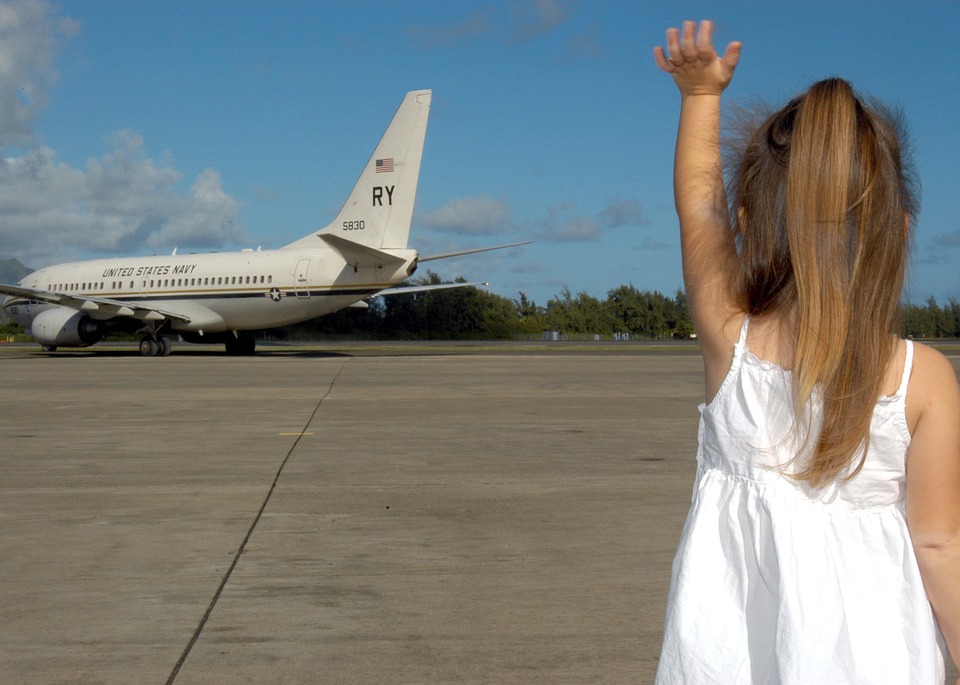Traveling by plane abroad in times of COVID-19, whether for family, tourism, or work reasons, can be complicated and stressful. Traveling abroad during the pandemic requires staying updated on the country of destination’s regulations, as they may change from one day to the next. Complete and timely information, along with some helpful tips from us, will ensure your stay is as pleasant and safe as possible.
To protect people’s health before, during, and after the trip, the CDC published a document with useful tips.
Before the trip
Before the trip, and to begin with, they advise: Check Each State’s Cases in the Last 7 Days.
You can also arrange a visit with a medical center that has an international health service or care for travelers before leaving the country. When traveling abroad during the pandemic, it is also important to have insurance that covers COVID-19 disease and make sure that the policy covers the repatriation costs.
Do not forget, of course, the masks, alcohol gel, and the thermometer.
If the traveler presents any suspicious symptoms of COVID-19, in no case should they leave their country and should immediately contact a medical service.
If symptoms occur during the journey or on the way back, you should also contact a medical service.
Remember that, regardless of the situation of the pandemic, you must get the appropriate vaccines if you go to destinations with a higher health risk, such as those with malaria, dengue, or other tropical diseases.
Quarantines and PCR
Knowing the regulations of the country of destination is essential because there may be quarantined upon arrival, even if no symptoms are present. When traveling abroad during the pandemic, it is crucial to stay updated on changing requirements to avoid unexpected delays or restrictions.
It could also be that they require an immune passport which would consist of the identification of specific antibodies or serology against SARS-CoV-2, as a potential method to identify those who have already passed the disease and therefore would be protected.
However, there are several unknowns that do not allow its implementation, such as the absence of evidence that the presence of antibodies protects against new infections, among other scientific and ethical limitations.
They may also ask for a PCR certificate within 48-72 hours, which proves that the person has undergone a PCR technique two or three days before and an active SARS-CoV-2 infection has been ruled out.
Additionally, given the circumstances, countries may require certain last-minute requirements.
At the airport
The first recommendation from operators is to maintain a safe distance and wear a mask.
Do not arrive more than 90 minutes before the scheduled flight time.
Avoid crowds within airport facilities.
Check the flight schedules, because they may be affected.
Bear in mind that access to airports will likely be limited to travelers only, that is, they may not be accompanied.
Some international airports may carry out extra checks and ask for security measures, such as frequent temperature checks or some kind of “disinfection.”
When traveling abroad during the pandemic, be prepared for longer waits and eventualities.
On the plane
During the journey, we should bear it in mind that the use of a mask is mandatory in many, if not all, companies, and it is recommended to use antibacterial gels and wash your hands often. When traveling abroad during the pandemic, it is essential to follow health guidelines to minimize risks.
Drink enough water to keep the mucous membranes hydrated, since the environment inside an airplane is dry.
Cabin air is either 100% fresh or recirculates 10 to 30%. In most modern companies, this air passes through microbial HEPA filters similar to those in operating rooms, therefore, in the cabin, the risk of infection is not high.
Another issue is the possibility of contagion by a seatmate, even if he were asymptomatic. Hence the importance of wearing a mask and maintaining hand hygiene.
Other advisable measures are not to move from the seat if it is not strictly necessary, use the designated toilets in the area where you are sitting, and contact the cabin personnel in case you feel unwell.
It can be considered to leave empty seats between passengers, but you have to be attentive to the evolution of the recommendations because they are constantly changing.
Services such as catering may not be offered due to hygiene conditions.
At your destination
During the stay in the destination country, try not to go to health centers except in case of illness, to avoid possible infections. When traveling abroad during the pandemic, it’s essential to take extra precautions to minimize health risks.
Do not visit markets or have contact with animals, as they can be a source of disease.
Avoid crowded areas or crowds where safety distances cannot be maintained.
Opt for accommodation that complies with the regulations, especially in terms of shared areas.
Avoid shared transport, especially if the traveler is a more vulnerable person.
Follow the rules of the country’s health authorities.
Assess the use of specialized telemedicine tools during the trip to guarantee contact with specialist doctors.
It should be known that, if there are signs of having COVID-19 during the stay and especially at the time of return, the airlines may put obstacles to return to the country of origin.
If you have been in contact with suspected or confirmed cases, you have to notify the appropriate health authorities to decide how to act.
When returning home
In principle, the report advises, it would be logical to carry out quarantine when returning or any method of controlling the SARS-CoV-2 infection if a country that registers a greater number of cases has been visited.
In any case, the guidelines indicated in each place must be followed and adjusted to the recommendations of the authorities. When traveling abroad during the pandemic, it is crucial to stay updated on travel restrictions and health protocols to minimize risks.
Before any sign of the disease, you should consult a doctor and inform the authorities or health agencies if you have had contact with a suspected or confirmed case.
If you travel to tropical and subtropical areas, and in general after any international trip, it is best to consult with a specialist in International Health or Tropical Medicine, because there are diseases such as malaria that could be very serious if not treated quickly.
All these recommendations should be sufficient to keep you safe when you travel abroad. In any case, if it is not absolutely necessary to travel, it’s best to stay at home. Because going out increases your exposure to the virus. Staying at home, on the other hand, is your safest bet.
Frequently Asked Questions
What precautions should I take before traveling abroad during the pandemic?
Before traveling abroad during the pandemic, check your destination’s regulations, ensure you have travel insurance covering COVID-19, and visit a medical center for necessary vaccinations. Don’t forget essentials like masks, hand sanitizer, and a thermometer.
Do I need to quarantine when traveling abroad during the pandemic?
Quarantine requirements vary by country. Some destinations mandate quarantine upon arrival, even if you have no symptoms. Always stay updated on travel restrictions to avoid unexpected delays.
Is a COVID-19 test required for traveling abroad during the pandemic?
Many countries require a negative PCR test taken within 48-72 hours before departure. Some may also require proof of vaccination or an immune passport. Check the latest entry requirements before your trip.
What safety measures should I follow at the airport?
When traveling abroad during the pandemic, arrive no more than 90 minutes before your flight, wear a mask, maintain social distancing, and check for possible schedule changes. Some airports may have additional screenings, such as temperature checks.
How can I stay safe on the plane when traveling abroad during the pandemic?
Wear a mask throughout the flight, use hand sanitizer frequently, and stay seated as much as possible. Most modern aircraft use HEPA filters, reducing the risk of airborne transmission.
What should I do if I develop symptoms while traveling abroad during the pandemic?
If you experience COVID-19 symptoms, seek medical attention immediately and notify the local health authorities. Airlines may prevent you from boarding your return flight if you are symptomatic.
How can I minimize risks at my travel destination?
Avoid crowded places, shared transportation, and unnecessary visits to healthcare facilities. Choose accommodations that follow hygiene regulations and consider using telemedicine services for medical consultations.
What should I do upon returning home from traveling abroad during the pandemic?
Follow local guidelines, which may include quarantine or additional testing. If you develop symptoms, consult a doctor and report any exposure to confirmed COVID-19 cases.




